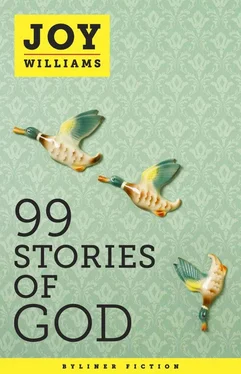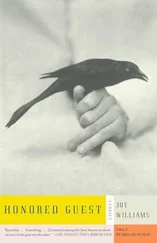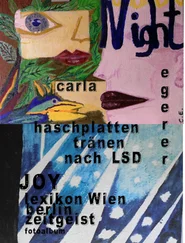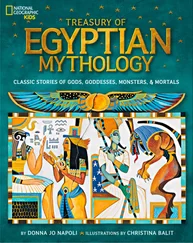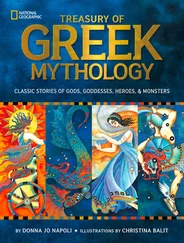His grandmother, his best and most faithful friend and advocate, lost her mind shortly thereafter, whereas he grew up to be a formidable jurist, quite ruthless and exact in his opinions, none of which in his long career was ever overturned.
16. If Picked or Uprooted These Beautiful Flowers Will Disappear
A child had drowned that August morning, and two women were walking in what the town referred to as the moors but which were technically not moors.
“It’s so dreadful,” Susan said. “I just can’t get it out of my mind.”
“In cases like this, my heart always goes out to the other children, the camp counselors, their parents, and the emergency room personnel,” Francine said.
“It does?” Susan said.
“The child’s mother is an artist. She shows at the Main Street Gallery. Maybe people will buy her work now.”
“I prayed for the family, but I really didn’t know what to say.”
“When I was eighteen I was a camp counselor one summer and I knew nothing, absolutely nothing. None of the counselors did. That’s why I never sent my children to camp.”
Francine was in her sixties now. Neither woman would ever see sixty-four again.
“That poor, poor child,” Susan said. “I can’t understand how it happened. There are no dangerous currents there.”
“I heard that the child’s father’s brother drowned,” Francine said, wincing pleasurably at the strange circumstance. “But he was much older, and it was before this child was even born.”
“I guess that would make him his uncle,” Susan said vaguely.
“My Lucy’s best friend — well, she’s not really that good a friend anymore — dated him for a while, the brother. He was sort of a bad apple.”
“A bad apple?” Susan said.
“Oh, look at these pearly everlastings! They say not to pick them, but someone will. I’ll just take one.”
Francine bent toward the flowers, her striking slender neck handsomely exposed. Susan picked up a stone and smacked her with it. There was a sharp, even satisfying, crack.
There were two funerals but only one trial.
Our mother was an alcoholic, though she’d stopped drinking twelve years before, but once an alcoholic, always an alcoholic. She’d had all those cakes. She moved around a lot, but wherever she was when the anniversary rolled around she’d get the cake.
Now she was dying. She’d stopped eating and was skin and bones, lying on a bed in her house, a house she’d said more than once she’d bequeathed to me. The house was the last thing I wanted.
I’m there with my sister, who is useless in situations like this, though for both of us it was a unique situation, one’s mother dying only once.
Our mother’s eyes were dark, black almost. Earlier that morning the skin on her arms was bleeding, but then it stopped.
She’d been quiet for hours, but then she said in this surprisingly strong voice, “Where is the refuge for my bewildered heart?”
It made me shudder. It was beautiful.
“Guide me, Good Shepherd,” she said. “Walk with me.”
My sister had to leave the room. I could hear her crying into the telephone. Who on earth could she be calling, I wondered, and why, at this moment? We know nothing about one another really, though we’re only a year apart.
Then our mother said in that same strong voice, like a singer’s voice:
“Tony, I’d like a martini. Make me a martini, honey.”
But I didn’t, I wouldn’t. I felt she’d regret it. I felt it just wasn’t right.
The tarpaulin should be 20' x 20'. When not in use, keep it rolled or folded up in a large garbage bag.

19. Perhaps a Kind of Cake?
When he was a boy, someone’s great-grandfather told him this story about a traveler in thirteenth-century France.
The traveler met three men wheeling wheelbarrows. He asked in what work they were engaged, and he received from them the following three answers.
The first said: I toil from sunrise to sunset and all I receive for my labor is a few francs a day.
The second said: I’m happy enough to wheel this wheelbarrow, for I have not had work for many months and I have a family to feed.
The third said: I am building Chartres Cathedral.
But as a boy he had no idea what a chartres cathedral was.
Our ferry’s crossing seemed to be taking longer than usual. From what we could remember of previous crossings, this seemed longer to us. Otherwise, matters proceeded in their usual fashion and things appeared to be the same, with none of us entertaining the notion that we hadn’t wanted to come.
If there is a crash at an American airport, the wreckage is removed immediately so as not to alarm the passengers on the flights that will come after.
This is not true at Russian airports.
While at some airports in the major cities, such as Moscow or St. Petersburg, the wreckage might be taken away quite as if nothing had occurred, small runways in Siberia are littered with failed flights, their rusting hulks simply pushed to one side.
On a recent flight from Nome to Chukotka, the woman in the seat opposite us became quite agitated as we dropped rather peremptorily through the dark skies. She began loudly praying to God for deliverance. My companion remarked that her fervent request was useless, as God had long ago turned his great back on Russia. She might just as well have prayed to the luxurious black sable coat that enveloped her from chin to ankle. We had earlier been half-hypnotized by its beauty, what my companion had dared to describe as the glimmering, endless depths in the fur of so many little animals.
When God abandoned the Aztecs, He turned their chocolate trees into mesquite.
Who was that old guy at the wedding? Nobody knew him. He was old and smiling. This was not good. He wore one of those tall, silvery boots that are supposed to assist in the healing of fractured bones. He had long, gray, undistinguished hair.
Finally, one of the groom’s brothers went up to him and said, Who are you?
I’m Caradoc, the old man said. Caradoc.
Well, were you invited? You’re creeping out the invited guests.
I’m not here to nibble on your fucking salmon, Caradoc said.
Later, the bride said: We should have let him stay. This is not good. What if he were Jesus or something?
The divorce cost seventeen times what the wedding had, and the children didn’t turn out all that well either.
24. Nid Duw Ond Dim (Without God There Is Nothing)
In the Midwest for a medical procedure, she attended a small Welsh Congregational Church for several months. There were about fifty members, but the number attending each week was much smaller.
She brought altar flowers for Easter Sunday. Others did as well, tulips and lilies and wildflowers. But her arrangement was from a florist and quite extravagant.
At the end of the service, one of the parishioners picked up the large and lovely display and commenced to walk away with it.
Excuse me, she said. I thought the flowers would remain on the altar for the glory of God. Allelujah.
He said, We have a lot of family coming over for dinner, and I want this as a centerpiece for the table.
Читать дальше
